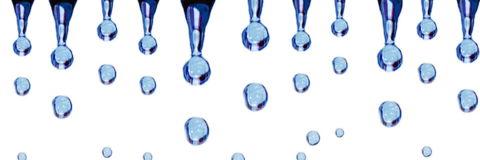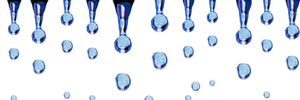Exercise Studies
Hydrogen-rich water affects antioxidant activity and gut flora in soccer players
Expending a considerable amount of physical energy inevitably leads to fatigue during both training and competition in football. An increasing number of experimental findings have confirmed the relationship between the generation and clearance of free radicals, fatigue, and exercise injury. Recently, hydrogen was identified as a new selective antioxidant with potential beneficial applications in sports. The present study evaluated the effect of 2-month consumption of hydrogen-rich water on the gut flora in juvenile female soccer players from Suzhou. As demonstrated by enzyme linked immunosorbent assay and 16S rDNA sequence analysis of stool samples, the consumption of hydrogen-rich water for two months significantly reduced serum malondialdehyde, interleukin-1, interleukin-6, tumour necrosis factor-α levels; then significantly increased serum superoxide dismutase, total antioxidant capacity levels and haemoglobin levels of whole blood. Furthermore, the consumption of hydrogen-rich water improved the diversity and abundance of the gut flora in athletes. All examined indices, including the shannon, sobs, ace, and chao indices, were higher in the control group than those proposed to result from hydrogen-rich water consumption prior to the trial, but these indices were all reversed and were higher than those in the controls after the 2-month intervention. Nevertheless, there were some differences in the gut flora components of these two groups before the trial, whereas there were no significant changes in the gut flora composition during the trial period. Thus, the consumption of hydrogen-rich water for two months might play a role modulating in the gut flora of athletes based on its selective antioxidant and anti-inflammatory activities.
Sha JB, Zhang SS, Lu YM, et al. Effects of the long-term consumption of hydrogen-rich water on the antioxidant activity and the gut flora in female juvenile soccer players from Suzhou, China. Med Gas Res. 2019 Jan 9;8(4):135-143. doi:
Effects of hydrogen rich water on prolonged intermittent exercise
Recent studies showed a positive effect of Hydrogen Rich Water (HRW) intake on acid-basic homeostasis at rest. The authors investigated 2-weeks of HRW intake on repeated sprint performance and acid-base status during prolonged intermittent cycling exercise. In a cross over single-blind protocol, eight trained male cyclists (age [mean ± SD] 41±7 years, body mass 72.3±4.4 kg, height 1.77±0.04 m, maximal oxygen uptake [V̇ O2max] 52.6±4.4 ml·kg-1·min-1) were provided daily with 2 liters of placebo normal water (PLA, pH 7.6, oxidation/reduction potential [ORP] +230 mV, free hydrogen content 0 ppb) or HRW (pH 9.8, ORP -180 mV, free Hydrogen 450 ppb). Tests were performed at baseline and after each period of two weeks of treatment. The treatments were counter-balanced and the sequence randomized. The 30-min intermittent cycling trial consisted in ten 3-min blocks, each one composed by 90 sec at 40% V̇ O2max, 60 sec at 60% V̇ O2max, 16 sec all out sprint, and 14 sec active recovery. Oxygen uptake (V̇ O2), heart rate and power output were measured during the whole test, while mean and peak power output (PPO), time to peak power and fatigue index (FI) were determined during all the 16 sec sprints. Lactate, pH and bicarbonate [HCO3-] concentrations were determined at rest and after each sprint on blood obtained by an antecubital vein indwelling catheter. In the PLA group, PPO in absolute values decreased significantly at the 8th and 9th of 10 sprints and in relative values, ΔPPO, decrease significantly at 6th, 8th and 9th of 10 sprints (by mean: -12±5%, p<0.006), while it remained unchanged in HRW group. Mean power, FI, time to peak power and total work showed no differences between groups. In both conditions lactate levels increased while pH and [HCO3-] decreased progressively as a function of the number of sprints. Two weeks of HRW intake may help to maintain PPO in repetitive sprints to exhaustion over 30 minutes.
DA Ponte A, Giovanelli N, Nigris D et al. Effects of hydrogen rich water on prolonged intermittent exercise. J Sports Med Phys Fitness. 2017 Apr 26. doi: 10.23736/S0022-4707.17.06883-9. [Epub ahead of print]
Hydrogen-rich water positively affects exercise capacity in mid-age overweight women
Molecular hydrogen (H2) improves body composition, metabolic profiles and mitochondrial function in overweight women, yet no studies so far evaluated the effectiveness of H2 for improving exercise capacity in this population. The authors examined the effects of 28-days supplementation with 1 L per day of hydrogen-rich water (HRW) on exercise capacity and quality of life in overweight mid-age women. Twelve women (age 53.8 ± 13.0 years, BMI 28.8 ± 3.3 kg/m2, VO2max 22.3 ± 3.7 ml/kg/min) participated in this randomized, placebo-controlled, cross-over, repeated-measure interventional study. All participants were allocated in a double-blind design to receive two randomly assigned trials: first group received 1 L per day of HRW (supplying ~ 9 ppm of H2), while the second group received placebo (tap water). Participants were evaluated at baseline, and following 28 days of intervention. The primary endpoint was the change in cardiorespiratory endurance (VO2max) assessed at baseline and at 28 days follow-up. Secondary outcomes included change from baseline to end of treatment in values for work capacity, impact of weight on quality of life (IWQoL), and hematological biomarkers. Participants were asked to maintain their usual lifestyle, dietary intake and not to use other dietary supplements during the study. HRW intervention significantly improved VO2max as compared to placebo at 28-day follow-up (26.2 ± 4.8 ml/kg/min vs. 24.2 ± 4.1 ml/kg/min; P = 0.03). Differences were found for time to exhaustion and total work completed during an incremental exercise, with HRW resulting in improvement of both variables as compared to placebo (P < 0.05). IWQoL scores and hematological markers were not affected by either intervention (P > 0.05). Results indicate that HRW can be used as an alternative hydration formulation to positively affect exercise performance in mid-age overweight women.
Ostojic SM, Korovljev D, Stajer V, et al. 28-day hydrogen-rich water supplementation affects exercise capacity in mid-age overweight women. Med Sci Sport Exerc 2018;49(5):S606.
Molecular hydrogen positively affected post-exercise recovery
Molecular hydrogen (H2) recently appeared as a novel and safe ergogenic agent that might have beneficial effects in athletes. However, no information is available concerning the impact of H2 on post-exercise recovery indices. The purpose of this study was to determine the effects of pre-exercise H2 administration on post-exercise heart rate and blood lactate responses in judo athletes. Five athletes (24.4 ± 3.4 yrs, 74.8 ± 2.3 kg, 177.8 ± 2.5 cm) were recruited for this randomized, placebo-controlled, double-blind crossover pilot study. Participants were instructed to ingest formulation containing 6.4 g of H2 or placebo ~ 30 minutes before repeated Special Judo Fitness Test (RSJFT). Blood lactates and heart rates were recorded during recovery period at 3 min, 5 min and 15 min, and 10 s, 20 s, 30 s, 60 s, 3 min and 15 min, respectively. Molecular hydrogen significantly blunted lactate response during recovery period as compared to the placebo (7.23 ± 1.95 vs 9.22 ± 1.51 mmol/L; P = 0.011). Furthermore, a trend has been found for decreased post-exercise heart rate in group supplemented with H2 (P = 0.111). Hydrogen-rich water appears to be an appropriate strategy to positively affect post-exercise lactates in judo athletes.
Drid P, Stojanovic MD, Trivic T, Ostojic SM. Molecular hydrogen affected post-exercise recovery in judo athletes. Med Sci Sports Exerc. 2016 May;48(5 Suppl 1):1071.
Hydrogen-rich water as ergogenic agent
Possible appliance of effective and safe alkalizing agent in the treatment of metabolic acidosis could be of particular interest to humans experiencing an increase in plasma acidity, such as exercise-induced acidosis. In the present study authors tested the hypothesis that the daily oral intake of 2L of hydrogen-rich water (HRW) for 14 days would increase arterial blood alkalinity at baseline and post-exercise as compared with the placebo. This study was a randomized, double blind, placebo-controlled trial involving 52 presumably healthy physically active male volunteers. Twenty-six participants received HRW and 26 a placebo (tap water) for 14 days. Arterial blood pH, partial pressure for carbon dioxide (pCO2), and bicarbonates were measured at baseline and postexercise at the start (day 0) and at the end of the intervention period (day 14). Intake of HRW significantly increased fasting arterial blood pH by 0.04 (95% confidence interval; 0.01 – 0.08; p < 0.001), and postexercise pH by 0.07 (95% confidence interval; 0.01 – 0.10; p = 0.03) after 14 days of intervention. Fasting bicarbonates were significantly higher in the HRW trial after the administration regimen as compared with the preadministration (30.5 ± 1.9 mEq/L vs. 28.3 ± 2.3 mEq/L; p < 0.0001). No volunteers withdrew before the end of the study, and no participant reported any vexatious side effects of supplementation. These results support the hypothesis that HRW administration is safe and may have an alkalizing effect in young physically active men.
Ostojic SM, Stojanovic MD. Hydrogen-rich water affected blood alkalinity in physically active men. Res Sports Med. 2014 Jan-Mar;22(1):49-60.
Hydrogen-rich water affected rate of acidosis induced by exercise in young healthy men
Metabolic acidosis is a clinical disturbance characterized by low pH in body tissues and blood and a variety of neuromuscular and cardiorespiratory responses. Besides treating the initial disorder, the main goal for patients with acidosis is to increase the systemic pH with alkalizing agents. The main aims of this study were to investigate whether daily oral administration of 2 L of HRW for 7 days affected baseline arterial pH and the rate of acidosis induced by exercise in young healthy men and to determine how many participants experienced adverse effects at follow-up after this treatment. Nineteen healthy male participants aged 20 to 26 years received 2 L of HRW daily (with approximately 1.1 mM/L of hydrogen dissolved in a drink, an oxidation-reduction potential of approximately 400 mV, and a mean ± SD pH of 9.3 ± 0.3) for 7 days, with participants instructed to sip the fluid throughout the day. The HRW was generated when the magnesium tablet (NORP Inc, San Diego, CA) was dissolved in drinking water before consumption (Mg + 2H2O → Mg[OH]2 + H2). Participants were asked to maintain their usual dietary intake and to not change their physical activity patterns during the study. Participants underwent blood sampling and endurance running at the start (day 0) and end (day 7) of the intervention period. At the preintervention stage, the mean ± SD fasting blood pH was 7.42 ± 0.01, whereas the postexercise pH was 7.29 ± 0.06. Intake of HRW significantly increased fasting arterial blood pH by 0.04 (95% confidence interval, 0.01-0.09) and postexercise pH by 0.05 (95% confidence interval, 0.01-0.10) after 7 days of intervention. No volunteers withdrew before the end of the study, and no participant reported any adverse effects of supplementation. Evidence confirmed previous animal studies that suggested that HRW may provide some benefits as a neutralizing agent.
Ostojic SM. Serum alkalinization and hydrogen-rich water in healthy men. Mayo Clin Proc. 2012 May;87(5):501-2.
Drink with hydrogen improves exercise performance in physically active men and women
In the current study we tested the hypothesis that an acute (7 days) intake of an alkaline negative oxidative reduction potential formulation (NORP) drink would reduce the rate of blood lactate accumulation during and after exercise, increase time to exhaustion, increase serum buffering capacity and not increase prevalence of adverse effects as compared to the control drink. Eleven participants (9 men and 2 women) met the criteria to take part in the study. Participants were randomized in a double-blind, cross-over design to receive the control and the NORP drinks within two single-week periods to study the efficacy of the NORP drink (at a dose of 1 L per day by oral administration). The NORP drink was supplied in bottles containing 2 g NORP, 6 g sucrose, 1-2 mg sodium per dose. The control drink was identically supplied and formulated except that it contained no NORP. Exercise testing was performed using a treadmill based ramp protocol. Blood glucose or total antioxidant capacity were not affected by supplementation (p > 0.05) while serum bicarbonates were significantly higher after the NORP trial (p < 0.05). Critical HR at the velocity of 8.1 mph during the test was significantly lower in NORP as compared to the control drink trial (p < 0.05). Blood lactate sampled at velocity 8.1 mph during the test was significantly lower in the NORP group (p < 0.05). No athletes reported any vexatious side effects of supplementation. It seems that NORP supplementation could have a beneficial effect on human performance during maximal exercise.
Ostojic SM, Stojanovic MD, Calleja-Gonzalez J, Obrenovic MD, Veljovic D, Medjedovic B et al. Drink with alkaline NORP improve exercise performance in physically active men and women. Serb J Sports Sci. 2011;5:83-9.
Effects of drinking hydrogen-rich water on muscle fatigue in elite athletes
Muscle contraction during short intervals of intense exercise causes oxidative stress, which can play a role in the development of overtraining symptoms, including increased fatigue, resulting in muscle microinjury or inflammation. Recently it has been said that hydrogen can function as antioxidant, so we investigated the effect of hydrogen-rich water (HW) on oxidative stress and muscle fatigue in response to acute exercise. Ten male soccer players aged 20.9 +/- 1.3 years old were subjected to exercise tests and blood sampling. Each subject was examined twice in a crossover double-blind manner; they were given either HW or placebo water (PW) for one week intervals. Subjects were requested to use a cycle ergometer at a 75 % maximal oxygen uptake (VO2) for 30 min, followed by measurement of peak torque and muscle activity throughout 100 repetitions of maximal isokinetic knee extension. Oxidative stress markers and creatine kinase in the peripheral blood were sequentially measured. Although acute exercise resulted in an increase in blood lactate levels in the subjects given PW, oral intake of HW prevented an elevation of blood lactate during heavy exercise. Peak torque of PW significantly decreased during maximal isokinetic knee extension, suggesting muscle fatigue, but peak torque of HW didn’t decrease at early phase. There was no significant change in blood oxidative injury markers (d-ROMs and BAP) or creatine kinease after exercise. Adequate hydration with hydrogen-rich water pre-exercise reduced blood lactate levels and improved exercise-induced decline of muscle function. Although further studies to elucidate the exact mechanisms and the benefits are needed to be confirmed in larger series of studies, these preliminary results may suggest that HW may be suitable hydration for athletes.
Aoki K, Nakao A, Adachi T, Matsui Y, Miyakawa S. Pilot study: effects of drinking hydrogen-rich water on muscle fatigue caused by acute exercise in elite athletes. Med Gas Res. 2012;2:12
Hydrogen-helium-oxygen mixture in humans during an open sea dive
Six commercial divers were investigated for neurological and psychosensorimotor responses during an open sea dive to 500 m with a hydrogen-helium-oxygen mixture containing 49% hydrogen. Results showed only moderate neurological symptoms of high-pressure nervous syndrome, whereas the narcotic effect of hydrogen was detectable, as investigated by psychosensorimotor tests. Nevertheless, the divers successfully carried out the main purpose of the operational dive, which was to prove the feasability of such diving methods by connecting specific elements of an offshore oil installation. Finally, these data support the hypothesis that hydrogen can alleviate some of the symptoms of the high-pressure nervous syndrome and can constitute a useful gas for commercial diving, as it decreases the density of the breathing mixture and therefore improves the living conditions, work, and comfort of the divers. Nevertheless, the present results underscore the relevance of research on individual susceptibility to pressure environment regardless of the composition of the breathing mixture.
Abrain JH, Gardette-Chauffour MC, Martinez E, Rostain JC, Lemaire C. Psychophysiological reactions in humans during an open sea dive to 500 m with a hydrogen-helium-oxygen mixture. J Appl Physiol. 1994;76:1113-8.



